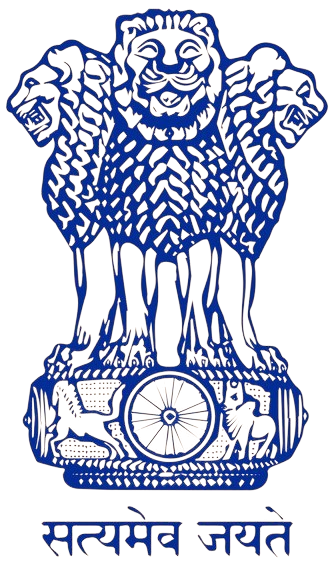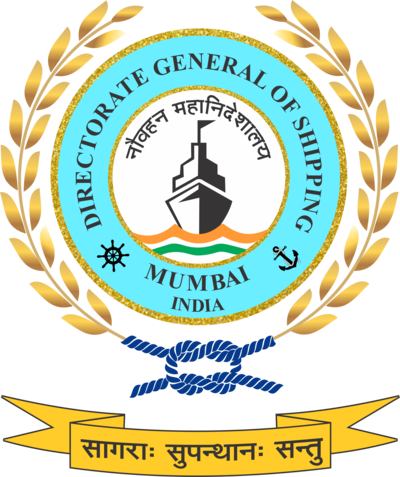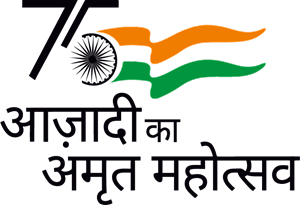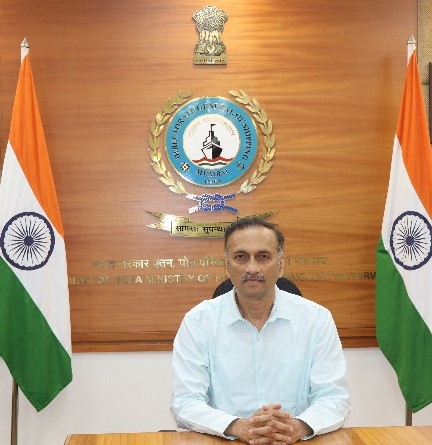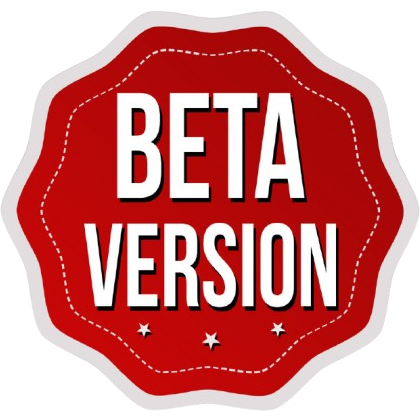Introduction & Background
The Sagar Mein Samman (SMS) Initiative has been launched in alignment with the Directorate General of Shipping (DGS) Order 18 of 2024, which underscores the need to promote gender inclusivity and equal opportunities for women seafarers in the Indian maritime industry. The order highlights specific steps for policy intervention, training programs, and workplace reforms aimed at ensuring the participation, safety, and career advancement of women in maritime.
DGS Order 18 of 2024 lays down a structured approach to creating a gender-inclusive maritime workforce by addressing employment barriers, workplace safety, and professional growth opportunities for women in seafaring roles. The SMS initiative aligns with this directive by implementing industry-wide strategies to foster inclusivity, establish governance frameworks, and enforce compliance.
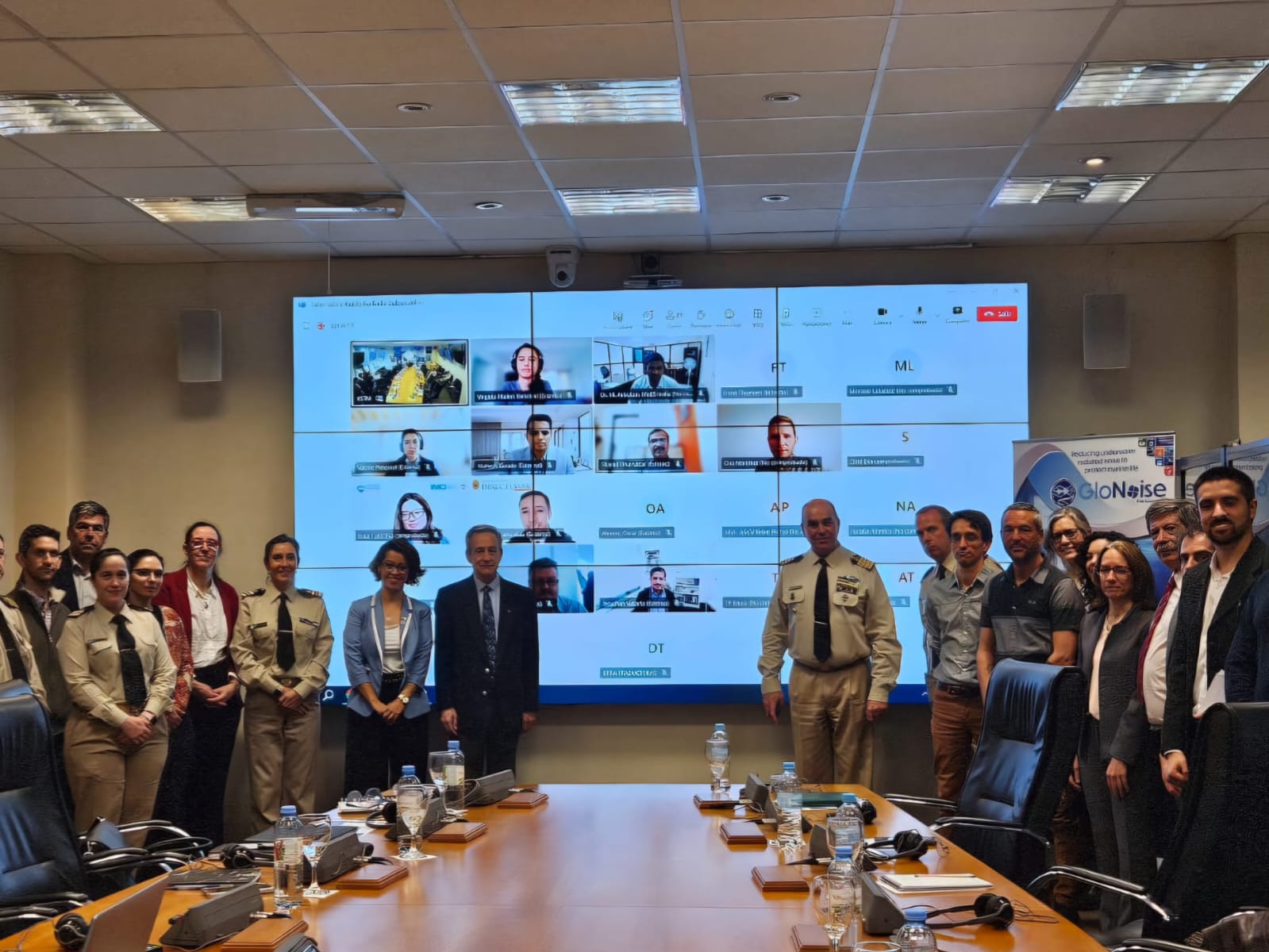
- Sagar Mein Samman
- Date : 28/04/2025
Vision
The Sagar Mein Samman (SMS) initiative envisions a maritime industry that is inclusive, safe, and equitable for women seafarers. The initiative aims to:
- Increase women’s representation in maritime careers by eliminating systemic barriers.
- Ensure workplace safety and equal opportunities through policy reforms.
- Promote career progression and mentorship to support women in leadership roles.
- Drive awareness and advocacy for gender inclusivity in the maritime sector.
- Strengthen regulatory compliance by ensuring industry-wide adherence to inclusivity standards.
By implementing these measures, SMS seeks to transform the Indian maritime sector into a gender-responsive industry, ensuring that women at sea and in allied maritime roles receive equal treatment, opportunities, and career support.
Strategic Objectives
The initiative aligns with DGS Order 18 of 2024 and focuses on the following objectives:
- Workforce Participation: Enhance the recruitment and retention of women seafarers.
- Safe & Inclusive Work Environment: Establish policies to prevent gender-based discrimination and harassment.
- Training & Capacity Building:Develop structured training modules and mentorship programs.
- Policy Reforms & Compliance: Introduce regulatory measures to institutionalize gender inclusivity.
- Public Awareness & Advocacy: Promote the role of women in maritime through industry campaigns.
Implementation Roadmap
The SMS initiative follows a structured five-phase execution plan, ensuring a systematic and sustainable approach to women’s inclusion in maritime.
Phase 1: Stakeholder Engagement & Database Creation
- Identify women seafarers, training institutes, shipping companies, and maritime regulators supporting gender inclusivity.
- Develop a comprehensive stakeholder database for targeted engagement.
- Establish partnerships with DG Shipping, MUI, shipowners, port operators, and maritime academies.
Phase 2: Policy & Research Development
- Conduct industry-wide surveys on the challenges faced by women seafarers.
- Benchmark against global best practices for gender inclusivity in maritime
- Draft policy recommendations to enhance women-friendly workplaces at sea.
Phase 3: Subcommittee Execution & Program Implementation
Deploy dedicated subcommittees to oversee inclusivity efforts:
- Research & Development (R&D) – Data collection, regulatory analysis, and industry benchmarking.
- Logistics & Budget – Financial planning and resource allocation
- Communication & Outreach – Public awareness campaigns and industry engagement.
- Governance & Compliance – Policy implementation and monitoring.
- Training & Capacity Building – Development of training programs, mentorship networks, and leadership initiatives.
Phase 4: Training & Capacity Building
- Custom-tailored training modules to equip women seafarers with technical skills, leadership capabilities, and workplace safety training
- Hybrid learning models, including online and in-person engagement.
- Mentorship networks to provide career guidance and peer support.
Phase 5: Governance, Monitoring & Compliance
- Implement auditing mechanisms to monitor compliance with gender inclusivity policies.
- Track industry-wide adoption of SMS recommendations and measure impact.
- Establish continuous feedback loops with women seafarers to refine strategies.
Key Subcommittees & Their Roles
1. Research & Development (R&D) Subcommittee
- Conducts stakeholder surveys on the experiences of women seafarers.
- Assesses awareness of legal policies & compliance standards.
- Evaluates training infrastructure & support mechanisms for women in maritime.
2. Logistics & Budget Subcommittee
- Ensures financial sustainability of the SMS initiative.
- Tracks resource allocation and operational efficiency in supporting gender inclusion.
3. Communication & Outreach Subcommittee
- Develops public awareness campaigns to highlight the contributions of women seafarers.
- Implements an internal communication plan for SMS task force coordination.
4. Governance & Compliance Subcommittee
- Ensures compliance with gender equity policies in maritime operations.
- Implements auditing mechanisms for policy enforcement.
5. Training & Capacity Building Subcommittee
- Designs technical training programs tailored for women seafarers.
- Develops leadership & career advancement modules.
- Establishes mentorship programs for career guidance.
Training & Capacity Building for Women Seafarers
The SMS Initiative introduces structured training programs to equip women in maritime with necessary technical, managerial, and leadership skills.
Training Modules
- Safety & Workplace Conduct – Addressing onboard challenges for women seafarers
- Technical & Operational Training – Enhancing competencies for shipboard roles.
- Post-Sea Reintegration: Stress recovery programs and career transition support.
- Leadership & Career Progression – Preparing women for higher-ranking positions.
- Gender Sensitization & Inclusion – Training maritime companies on equitable workplace policies.
- Mental Well-being & Support Networks – Ensuring psychological resilience at sea.
Training Delivery Methods
- Online & In-Person Workshops
- Mentorship & Leadership Programs
- Interactive Case-Based Learning
- Learning Management System (LMS) for Digital Training
Governance & Compliance Strategy
- Periodic Compliance Checks: Ensure adherence to gender inclusivity standards as per DGS Order 18 of 2024.
- Framework Validation: Align policies with IMO & DG Shipping regulations.
- Performance Tracking: Establish KPIs to measure training success & retention.
Projected Impact & Outcomes
- Greater Representation of Women in Maritime Careers.
- Improved Workplace Safety & Support Systems.
- Structured Mentorship & Career Growth Pathways.
- Industry-wide Compliance with Gender Equity Standards.
Execution Timeline
| Phase | Key Actions | Timeline |
|---|---|---|
| Phase 1 | Stakeholder Mapping & Database Creation | Months 1-2 |
| Phase 2 | Research, Policy Drafting & Consultation | Months 3-6 |
| Phase 3 | Training Program Development & Implementation | Months 7-9 |
| Phase 4 | Industry Adoption & Governance Enforcement | Months 10-12 |
| Phase 5 | Monitoring, Compliance & Refinement | Ongoing |
Final Commitment
- Establishing an industry-wide movement for women’s inclusion in maritime.
- DG Shipping & MUI as enablers of sustainable gender-inclusive transformation.
- Full compliance with DGS Order 18 of 2024 to institutionalize gender equity in Indian maritime.
Conclusion
The Sagar Mein Samman initiative represents a transformative movement for achieving true gender inclusivity in the Indian maritime sector. By ensuring compliance with DGS Order 18 of 2024, it sets new industry benchmarks in gender equity and workforce inclusivity.
With collective efforts from maritime stakeholders, this initiative will drive long-term impact and sustainable transformation for women seafarers and maritime professionals alike.

